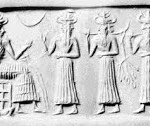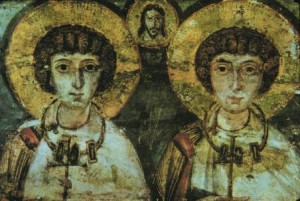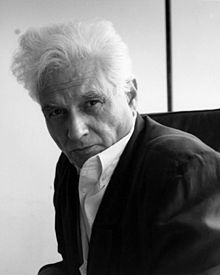Christianity is often criticized for not understanding the struggle of the modern man. Many of the thinkers of the early Atheistic community bring up valid points on this subject, and even more modern Christians have failed to address, or even acknowledge, these concerns. If these thinkers are to be taken seriously in their concerns and questions, even if we reject their conclusions and outlines for living, then we must, without so much as a second thought attest to the fact that the struggle of mankind is, at its core, an Existential one.
As the German philosopher Schopenhauer described it, the nature of existence is desire, that is, a want for fulfillment. These can be seen most simply in the basic necessities of life, i.e. food, water, sleep, etc. However, the deepest and most inexorable desire of the human existence is, if we are to be at all honest with ourselves, is the desire for justification, for a reason behind the Promethean struggle that is human life. We, all of us, were we to be truly and authentically honest about it, would have to agree that we all stand, metaphorically, upon the mountain top and cry unto the heavens, “WHY AM I HERE? WHAT DO YOU WANT FROM ME?!” This question, this unanswerable cry unto Creation is the most sincere expression of the human condition as it stands. We are like unto Dante, wandering alone and afraid in the woods. Drifting, searching, and screaming as a child who has lost his way and is separated from his parents.
Fyodor Dostoevsky, the 19th Century Russian author, makes the claim that we do not cry out unless we have hope for the existence of rescue in his novel, “The Idiot.” In this work he tells the story of a man condemned to death and even up to the very last moments of his life he doesn’t make any attempt to call for help, he doesn’t scream, he doesn’t struggle; he neglects all of these things, which are without a doubt justified in the last moments of anyone’s life, because he knows that he would not be heeded were he to have made any cry. No one would help him. He is condemned and all other men are certain that he needs to die, or at least all those who have the ability to help him. This is contrasted, in the story, with the man who is attacked by bandits in the woods. A man attacked by robbers cries out with all of his might, all sound and fury within his capability is expounded in his absolute desperation, because he has hope that someone might hear him. He believes help will come. Clearly we call out, as we have just stated the exact fact that we cry out. And thus we must certainly hold, somewhere deep within ourselves we believe that there is someone who will come to rescue us.
And so we know that we believe that there is someone who will come to help us. And surely it is a person, we do not cry out for a map to tell us where to go. And a map would not suffice for we are like children, and a child finding this map would still be helpless, and even if not left helpless he would surely not be comforted in the same way as if he had a real, human guide to show him the way. So, we know, in our truest, deepest self, that there ought to be a person, a fellow man, who will lead us out of the dark wood of being, the ever present “wound of existence” as Nietzsche puts it.
For the answer to our question of being we must again turn to our Russian friend as he explains that “the whole law of human existence consists of making it possible for man to bow down before what is infinitely great. If man were to be deprived of the infinitely great, he would refuse to go on living, and die of despair.”
Thus we, as humans, seek after infinity and a man. And as Christians we, were we truly to consider ourselves as such, know someone who is both.












